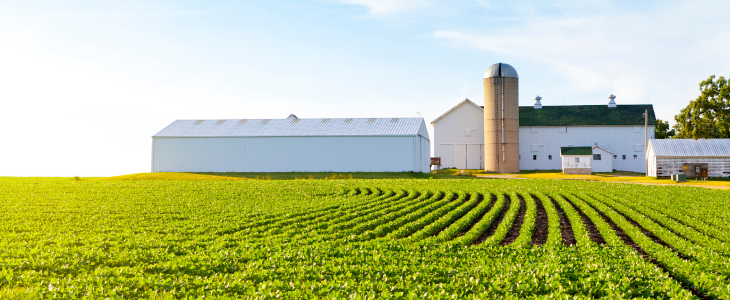Wisconsinites know that our farms are so much more than businesses, but instead are unique entities built through years of dedication, stewardship, and hard work. Founding father Thomas Jefferson famously said “Agriculture is our wisest pursuit, because it will in the end contribute most to real wealth, good morals & happiness.” High praise indeed.
At Borakove Osman LLC, we know that without proper planning, these cherished family enterprises are at risk. Farm continuation planning is crucial for Wisconsin farmers who want to protect their life’s work and ensure a smooth transition to the next generation.
Why Every Wisconsin Farmer Needs a Continuation Plan
Farm continuation planning (also described as succession planning), sets out how a farm transfers from one generation to the next. Without a clear plan, families often face unexpected challenges. Disputes can arise among heirs, heavy estate taxes can force the sale of land or assets, and uncertainty about leadership can disrupt the operation of the farm itself.
In Wisconsin, where agriculture is a vital part of the economy and cultural identity, these risks are particularly serious. Developing a continuation plan helps farmers protect not just their businesses, but their family heritage.
Protecting More Than Just the Land
A farm is much more than the sum of its acreage and buildings; it carries the history, values, and collective memories of a family. Careful planning ensures that this legacy endures. A strong continuation plan will identify successors, prepare them for leadership roles, and outline a strategy for ownership and management transition.
Often, a key goal is to treat all family members fairly while preserving the farm’s operational integrity. Equal division of assets among heirs isn’t always possible or smart if it threatens the future of the farm. A well-crafted plan balances these competing interests thoughtfully.
Additionally, good planning can minimize estate taxes and legal fees, ensuring more of the farm’s value remains with the family.
Key Components of a Successful Farm Continuation Plan
An effective continuation strategy combines several legal and financial tools. These often include:
- Wills and Trusts: These clarify the distribution of farm assets and minimize probate issues.
- Business Entity Planning: Using LLCs, partnerships, or corporations can make ownership transitions smoother and offer liability protection.
- Buy-Sell Agreements: Outline how farm shares can be transferred or sold, often funded through life insurance.
- Retirement and Income Planning: Ensure the retiring generation has sufficient resources without burdening the next generation.
- Communication: Ongoing family discussions are essential to align expectations and foster unity.
It’s important to recognize that each family and farm is unique, so a personalized approach to succession planning is critical.
Start Planning Early So You Can Adapt Over Time
Ideally, farm continuation planning should start years before a transfer is expected. Early planning allows time for the next generation to develop the skills and experience they need to succeed. It also creates space to adjust plans as family dynamics, economic conditions, and tax laws evolve.
A continuation plan is not a one-time event; it should be revisited regularly to stay current and effective.
Call Experienced Madison & Dane County Farm Continuation Planning Attorneys for Help
At Borakove Osman LLC, we are well-versed in the unique challenges Wisconsin farmers face when planning for the future. Our experienced estate planning attorneys are here to help you craft a farm continuation plan that best reflects your family’s goals.

